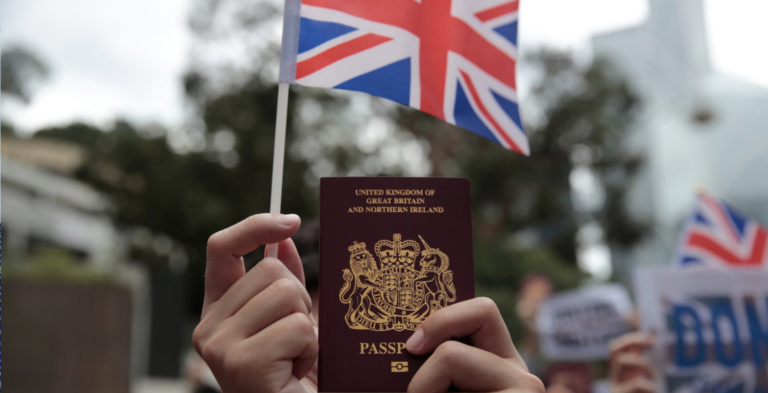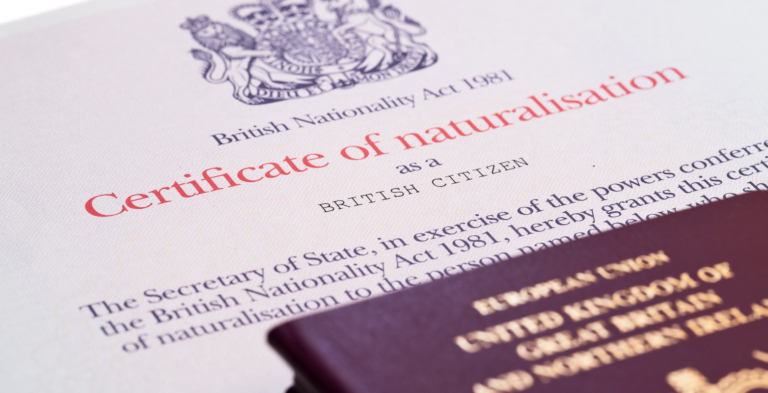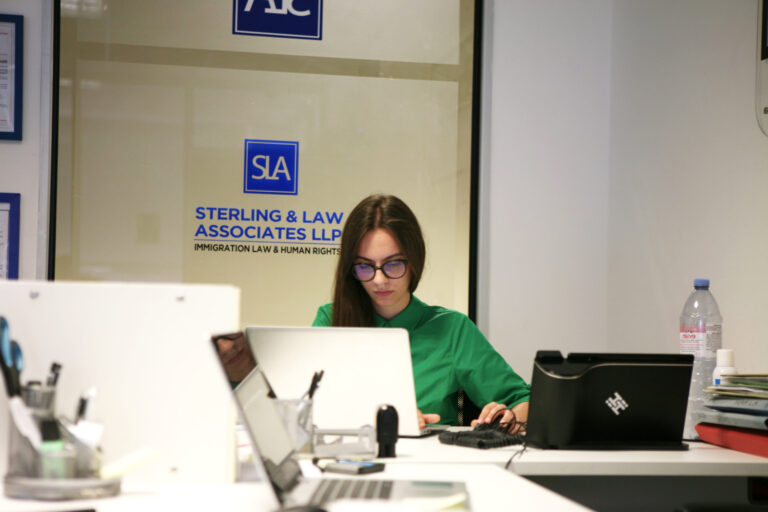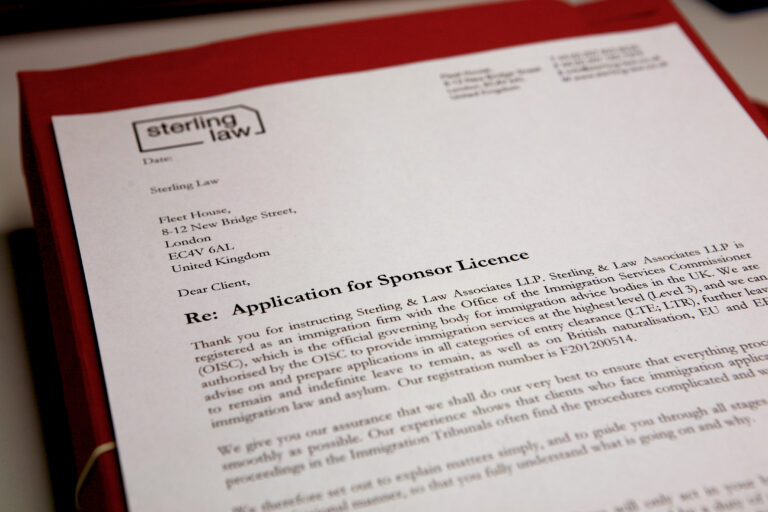Skilled Worker Sponsor Licence application

If you already have a Sponsor Licence and interested in extension, click here for more information on sponsor licence renewal.
- What is a Sponsor Licence?
- Basic requirements.
- Main licence types.
- Applying procedure.
- Required documents.
- Sponsor licence costs.
- Certificate of sponsorship.
- Reasons for refusal.
- Why Sterling-Law?
What is a Sponsor Licence?
A sponsor licence is a permission necessary for each company from the UK that expects to hire employees from other countries. Also referred to as Tier 2 sponsor licence, this permission allows UK-based employers to receive certificates of sponsorship (CoS) and send them to prospective workers from other parts of the world who want to come to the UK. The Skilled Worker Sponsor Licence program is designed to provide a legal way for local businesses to hire valuable workers from abroad if the need arises. These licences are also mandatory for educational institutions.
Applying for a sponsorship licence is a complex procedure, and keeping the permission active requires following strict guidelines set by the government. These guidelines include the obligation to make your company’s HR procedures well-adjusted, effective, and aligned with the standards of the authorities. The permissions are valid only for 4 years, and then a company has to apply for a sponsor licence once again.
Let’s see how to get a sponsorship licence in the UK and what the main prerequisites are now.
Basic requirements
Any company applying for a sponsor licence must comply with the following key sponsor licence requirements:
- have real business and operate legally in the UK;
- be headquartered in the country;
- abide by the immigration laws;
- have fair and reputable management;
- have a decent HR department that can support your status as a reliable employer efficiently and consistently.
Legality
The law requires that every company trying to hire foreign workers must legally operate in the UK and be properly registered as a PLC, LTD, LLP, or Sole Trader. The company must also provide an up-to-date permission or a written consent of the authorities for their industry.
Reliability
A company trying to get a licence must have a clear record related to breaking the current immigration laws. It will also have to prove that its management is not currently related to economic offences like fraud. If the company have had its licence revoked recently, it can also be a sufficient reason for refusing.
Moreover, you must convince the government that your core staff listed in the documents is reputable and sincere. Core staff includes top management and employees responsible for managing the procedure.
Management
The government must also be convinced that your business will actually be able to carry out the sponsorship-related duties. While there is no unified list of strict requirements here, in practice this means you must have well-adjusted business processes and maintain all the related papers in order. Key management-related requirements include:
- make sure that your foreign staff has the necessary skills and can enter the country;
- perform mandatory checks;
- verify and archive all the documents related to the procedure;
- be ready to tell about events such as a foreign worker leaving.
However, UK companies no longer have to perform special tests to check if some local specialist can fill the vacancy before it is given to a foreign one.
Main licence types
There are 2 types of sponsor licence in the UK: for all workers and just for temporary workers. If a business wants to hire workers from outside of the country, it must choose one of them when submitting the application. It can only employ foreigners for the type of licence it is granted.
Worker licence
A licence of this type is issued to companies who are going to hire foreign specialists for any time, and it supports short, long, or permanent contracts. These licences can be issued for a variety of reasons, including:
- Skilled worker — for foreign specialists who have the required skills to work in the UK.
- Senior or Specialist worker visa — for international companies that would like to relocate an existing specialist from abroad to their branch in the country.
- Minister of religion — for foreigners who are going to work for religious institutions.
- International sportsperson — for professional sportspeople and their teams.
Your sponsor licence application must clearly define which types of employees you want to hire. If you need several types of workers, there’s an option to choose several categories at once within a single application.
Temporary worker licence
This kind of licence enables companies from the UK to employ foreigners on a short-term basis. It includes seasonal workers, volunteers, and so on. Such licences can also be issued on numerous grounds, including:
- Creative worker – for people in the entertainment industry, valid up to 2 years.
- Charity worker – for volunteers who work without pay for charity, up to 1 year.
- Religious worker – for temporary workers employed by religious institutions, up to 2 years.
- Government authorised exchange – for workers involved in training or research programs, mostly intended for internship, training, or academic exchange, up to 2 years.
- International agreement – for foreigners planning to work on the basis of an international law or agreement, including official representatives of other countries.
- Graduate trainee – for foreign employees who get relocated to a UK office of a larger firm on the basis of a graduate training system.
- Service supplier – for foreigners planning to provide services to a local business based on a short-term contract, up to 1 year.
- Expansion worker – for representatives of international companies coming to the country in order to create a new office of a foreign business.
- Secondment worker – for employees relocating to the UK from abroad to work for another business based on a high-value contract.
- Seasonal worker – for foreigners planning to work in the farming industry, mostly for fruit or vegetable picking, up to half a year.
Once again, companies must clearly define which categories of temporary workers are needed. If a company needs several kinds of short-term workers, it can be allowed to hire them all by a single temporary licence.
Applying procedure
Applying for sponsorship involves going through several key stages, as follows:
- Review your company’s needs and decide the type of workers you need to include.
- Make sure the business can accommodate them and review your HR processes.
- Choose the employees who will be listed as key staff in the application – you’ll need a main responsible officer, a main contact, a Level 1 user of the Sponsor Management System, and a Level 2 user of the Sponsor Management System.
- Gather all the documents required for the application.
- Choose the number of certificates you need for the first year of your licence.
- Once you have all the numbers, names, and files, submit your application online and send a hard copy of the application to the Home Office.
- Prepare to be visited by a representative of the Home Office, if your business is obliged to undergo such checks.
- Wait for the answer.
The whole process usually takes 2-4 months.
Required documents
The Home Office provides official sponsor licence guidance detailing every possible document it may request from companies applying for the licence. While the entire list is rather extensive, the minimum number is 4 essential papers. However, you may not be obliged to send these papers if the government already knows you as a public body, such as a local authority or a major business listed on London Stock Exchange.
Depending on the industry, your business, and the kind of licence you want, you may be required to provide several or all of the following documents:
- proofs that your company actually does business, such as financial reports or accounting data for the past financial year;
- contracts for goods and services for the past 12 months before the date of your application;
- banking documents to prove that you have an active bank account in a bank regulated by the Financial Conduct Authority (FCA) and the Prudential Regulation Authority (PRA);
- VAT registration certificate;
- franchise agreement;
- evidence of registration;
- endorsement from a governing body;
- for institutions hiring religious workers – full information about your main organization, its connections to your entity, the internal hierarchy and your place in that hierarchy, the size of your congregation, the number of the clergy currently working for your entity, addresses and telephone numbers of the meeting places, and your schedule including details about hours of worship in your organization;
- evidence of connection to an international organization or a foreign business by control via a joint venture agreement or common ownership;
- evidence of your graduate training program;
- evidence of your international trading activities;
- detailed plans for your expansion to the country.
However, this list is not exhaustive. You may be required to provide additional papers. The full list may be acquired by contacting sponsor licence lawyers or the Home Office itself. Please note that the actual sponsor licence processing time directly depends on the number of documents, so you should have them prepared by the time you apply to avoid delays.
Sponsor licence costs
Here is the sponsor licence fee structure:
| Type of licence | Small or charitable companies | Medium or large companies |
| Worker licence | £536 | £1,476 |
| Temporary worker licence | £536 | £536 |
| Worker and Temporary worker licence | £536 | £1,476 |
| Additional Worker licence for an active Temporary worker licence | Free | £940 |
| Additional Temporary worker licence for an active Worker licence | Free | Free |
Small or charitable companies are businesses that have at least 2 of the following characteristics:
Reasons for refusal
The Home Office may refuse to give your company a sponsor licence due to following reasons:
- failing to comply with any of the requirements;
- not responding in time to the authorities’ enquiries;
- suspicions that your application is a fraud;
- active convictions related to various offences;
- providing partial or misleading data.
Why Sterling-Law?
Sterling Law is one of a limited number of firms which possess a thorough understanding of the sponsorship arrangements and obligations. We will manage the entire appeal and/or review process against the Home Office’s decision to withdraw or downgrade your Sponsor Licence status, helping you to navigate through Home Office bureaucracy without the fear of additional costs to your business. In return, the business will benefit by having more settled skilled workers as their immigration status will be dependent on the terms of sponsorship.






















